
Contributed by Michael Brennan / The seven large paintings in Kim Uchiyama’s solo show “Heat and Shadow” at The Lobby Gallery were inspired by Greek temples located in Sicily. They are rigorous, modernist, and abstract. But what might ancient sacred spaces have to offer anyone in midtown Manhattan in 2022? Yale architectural historian Vincent Scully – not to be confused with famed Dodgers’ announcer Vin Scully, though both were great humanists – suggests a connection. In his classic 1962 book The Earth, The Temple, and The Gods, Vincent Scully noted that “the temples were not normally intended to shelter men within their walls. Instead they housed the image of a god, immortal and therefore separate from men, and were themselves an image, in the landscape of his qualities.” In this, he said, “they were capable of embodying states of being and, sometimes, of action.”


The blocks of different-colored spaces do seem to represent alternative states of being, which pushes them beyond the merely formal or geometric. Each painting has a distinct mood, with some passages appearing calm in the clarity of dry light and others incorporating brushy undercurrents of agitation. For twenty-first-century New Yorkers, enjoying any kind of space set aside exclusively for higher contemplation is rare.

Uchiyama’s paintings celebrate and delineate such space. She is a master of solids, intervals, and color atmospherics. Her work is more animated than it appears at first glance, featuring subtle irregularities, slow but endless movement, some unfinished business, showcasing a distinct sense of proportion and rhythm. Especially notable is her activation of otherwise blank neutral bands of linen, enhancing the illusion of color with surrounding painted areas.


Uchiyama also has a newer painting, Theta from 2022, in a group show entitled “Soft Geometry” at New Collectors on the Lower East Side. The piece recalls Brice Marden’s late modernist post-and-lintel paintings (particularly Thira) as well as the work of David Novros (who currently has work on view at the Judd Foundation) and the late Doug Ohlson.



All four artists seem to draw on classical architecture, but Uchiyama’s scale and harmonics are entirely her own. Some time ago I was going through an emotional rough patch. I read Homer’s Odyssey and, to my surprise, found it worked a bit like a self-help book. I feel much the same way about viewing Uchiyama’s paintings. They present an opportunity to step into something deeper and broader than vexing immediate circumstances – to sample what David Foster Wallace once called “the Platonic Always.”
“Kim Uchiyama: Heat and Shadow,” The Lobby Gallery, 499 Park Avenue at 59th Street, New York, NY. Through February 23, 2023.
“Soft Geometry,” New Collectors, 191 Henry Street, New York, NY. Through November 27, 2022.
About the author: Michael Brennan is a Brooklyn based painter who writes on art.
Two Coats of Paint 2022 Fundraising Campaign: This is Day One! Readers, If you enjoy our art coverage, please consider making a tax-deductible contribution. Help keep the painting conversation going in 2023. Thank you! Click here to contribute.


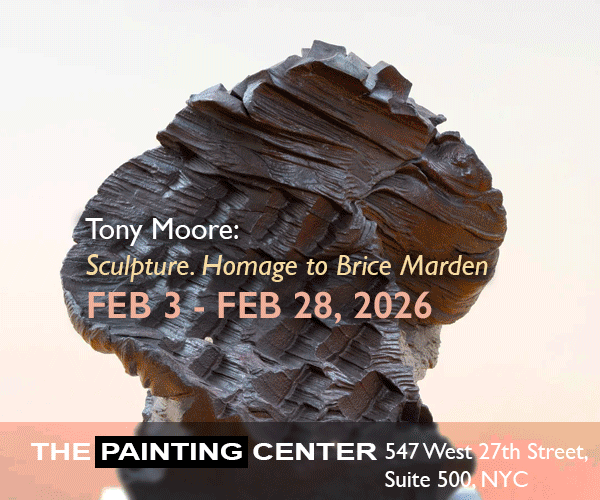


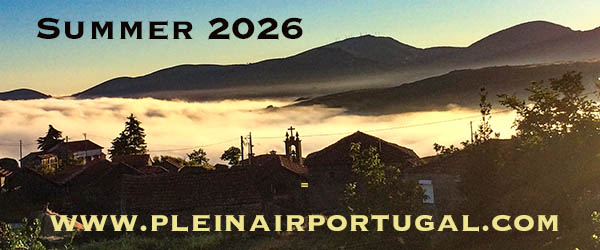
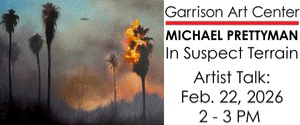
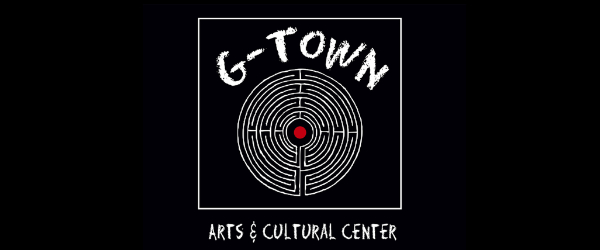











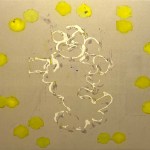

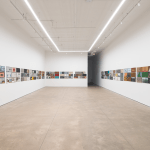
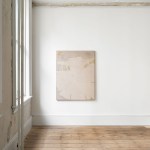

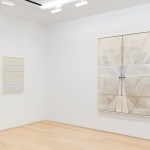
Connecting art to temples and missing sacred spaces in New York and the discussion about the purpose of temples charged me to make the suggestion that the author might not be aware that there is an active temple in New York. This sacred space accomplishes all that Mr. Brennan yearns for in this intelligent article. I live in the Washington DC area and we also have an active temple here where I obtain solace and direction in this busy place. Kim Uchiyama’s artwork as described here provides a thoughtful perspective on my current temple experiences.